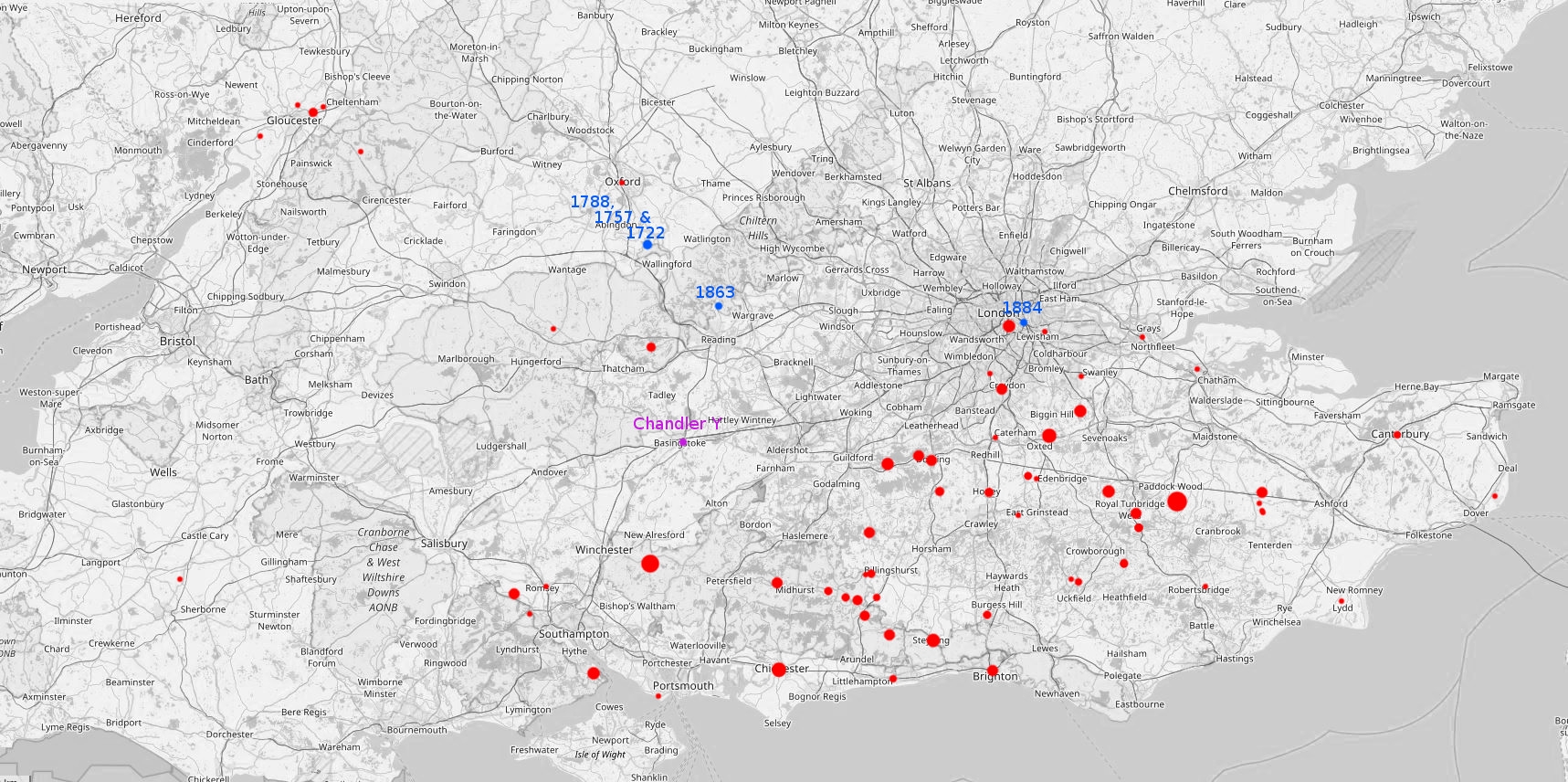My great grandfather Brooker's origins were a bit of a mystery that inspired my interest in family history 30 years ago. He was estranged from his wife and family, and was my only great grandparent not born in Norfolk. I found his origins on the East side of London, south of the river. His father was born during 1864, in an agricultural labouring family in rural Oxfordshire. His grandfather was born several miles up river, and on the opposite bank in Berkshire, again in an agricultural labouring family. I trace back securely to my 6 x great grandfather John Brooker, born circa 1724. However, sorting out which parish he was born has already been an incredible chore, involving more than one prime suspect, only for further evidence to emerge that discredits the candidate.
I have no idea how people can claim to discover their entire genealogy dating back to the Early Medieval, in weeks! It's taken me 30 years so far, and chasing my paternal line further is a long term project - I'm not hurrying.
So my Y-DNA was a bit of a surprise. L1b2c or L-SK1414. Incredibly rare (only named since I tested, and the SK1414 SNP correlated with one found on a survey in Makrani), and associated with an origin in Western Asia between the Levant and Pakistan. Found so far in Balochi, Druze, Mountain Jew, and Parsi, in Pakistan, Iran, Lebanon, Azeribaijan, and Saudi Arabia. But it's also found in two Southern English families. Mine (Brooker), and a Chandler family that share an ancestor that lived in Basingstoke, Hampshire, during the 1740s. He was contemporary with my 6 x great grandfather Brooker, who lived in Berkshire only 32 miles away as the crow flies.
Our two families clearly share a common Y ancestor before 1720. Our STR are close. I'm sure that there must be many more of us, untested with ancestry in Southern England. I doubt that it was more recent than 400 years ago. But looking at Yfull, and STR age predictions (I know they are unreliable), I doubt that our line has been in Europe for more than 2000 years.
Some other L-SK1414 have turned up in the USA in people with European Y ancestry, including one from a believed Mennonite ancestry in Central Europe, and an other from the Portugese Azores (with an STR marker that is shared with some Parsi). However... their STRs look different from the English, and those SNP tested don't have my terminal SNP FGC51036 (which FT-DNA added to the L SNP pack).
So at the moment, I still think it's possible that my Y line (shared with the Chandlers) moved direct from Western Asia to Southern England, in one or two generations, between 2000 and 400 years ago. Until more results suggest otherwise. An Asian traveller (no, not yet found in Roma - and more associated with the area of Iran). Yes I've speculated, Roman soldier from Syria, Crusader's slave, Persian merchant, mason from the Byzantine Empire - but the fact is, you can't guess these things, or always pin them to great historical events. History doesn't record every individual with itchy feet.
I've started a Brooker surname project. I've so far added all English Brooker on baptism records between 1550 and 1600. What the distribution maps (and later examples on surname distribution websites) suggest is that the Brooker surname had not been in Berkshire very far back, but may well have spread right through Basingstoke and Hampshire from the South Coast. It's tempting to see the Y ancestor as arriving at a South Coast port of England, and his descendants moving up through Hampshire where both the Brooker and Chandler lines could have still shared the line - bringing it nearer to 400 years ago, than to 2000 years ago. But that's an awful lot of conjecture.
It does support that my biological line stays true to the surname, at least to Oxfordshire / Berkshire, as it's so geographically close to the known origins of my closest Y cousins, the Chandlers.
Distribution of BROOKER in Southern England between 1550 and 1600 at the top of this post.
